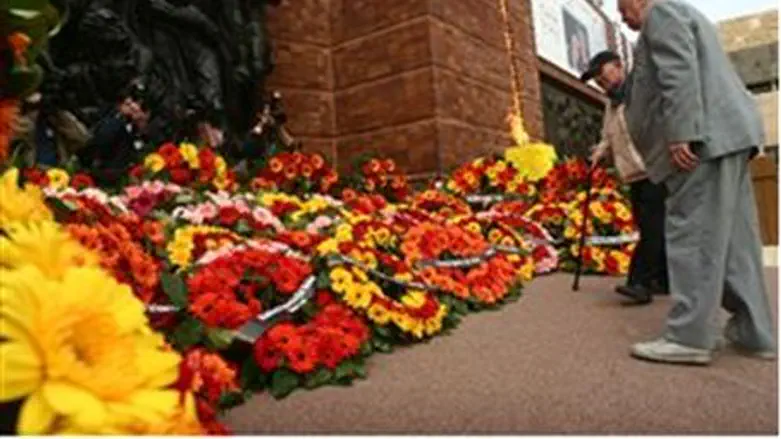
The Yad Vashem Holocaust Martyrs' and Heroes' Remembrance Authority is planning to pay tribute to William Cooper, an indigenous Australian (Aborigine) who led a protest march against the mistreatment of Jews in Germany following Kristallnacht in 1938. The protest is thought to have been unprecedented, and it caused an international stir. Yad Vashem plans to endow a small garden at its entrance in Cooper's honor in December.
Cooper's protest included a march through Melbourne and an attempt to submit a petition against the “cruel persecution” of Jews to the German consulate. German officials refused to take the document.
Prior to his protest on behalf of German Jews, Cooper had fought for decades against persecution of indigenous Australians in his country. He was 77 when he organized the 1938 rally targeting Germany's anti-Semitic policies.
Australian businessman Albert Dadon, chairman of the Australia Israel Cultural Exchange, submitted Cooper's name to Yad Vashem for recognition. Dadon was inspired after visiting Yad Vashem, where a guide mentioned that Cooper's rally was the only private protest against Germany in the wake of Kristallnacht.
Yad Vashem's team of historians researched the story for several months, and ultimately concluded that Cooper will be honored.
Kristallnacht was a night of state-sponsored attacks on Jews carried out under the Nazi regime. More than 90 Jews were murdered in the attacks, well over 250 synagogues were destroyed, and an estimated 30,000 were arrested and sent to concentration camps. The pogrom received its name - translated as “the night of broken glass” - due to the glass from the many shattered windows of Jewish homes and businesses left littering the ground.
The attacks are widely seen as having been the turning point at which the Nazi regime moved from discrimination against Jews to physical attacks and murder.